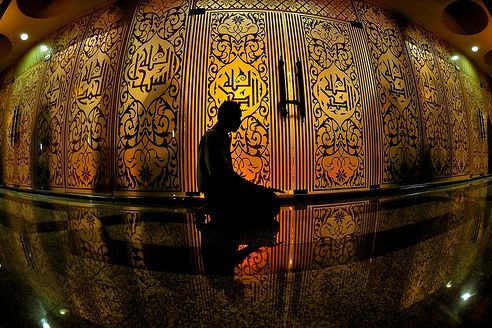Ramadan is the holy month of blessings in which Muslims all around the globe fast for the sake of Allah Almighty. Ramadan is the best opportunity for Muslims to seek forgiveness and getting closer to Allah (SWT). Muslims passionately spend this time for seeking forgiveness of their sins and getting close to Allah Almighty. This devotion rises to its highest especially in the last ten days of Ramadan. One of the standout rituals of the last ten days of Ramadan is the Sunnah of Itikaf. Itikaf is a form of worship that Muslims perform during last ten days of Ramadan.
In Itikaf Muslims spend the last ten days of Ramadan in seclusion in a Mosque for a certain time; all they do is pray to Allah Almighty seeking forgiveness and blessings. In Itikaf one should stay with the intention to worship Allah (SWT) by praying formal or informal prayers although prayer is not a condition therein. Hazrat Aisha (RA) reported about our beloved Prophet Muhammad (SAW) that: “He (SAW) used to perform Itikaf in the last ten days of Ramadan until Allah the Mighty & Majestic, took him.” (Bukhari)

Rules for Itikaf
While performing Itikaf there is certain that we all should know about. Below we will discuss them:
- A person should stay in a mosque for the duration of the Itikaf except for certain things as described in the prophetic sayings: Aisha (RA) reported that: When the Prophet (SAW) observed I’tikaf, He (SAW) did not enter the house except to relieve himself. (Muslim)
- Fasting is the basic condition of Itikaf.
- For men, Itikaf should be in a mosque but for women, the place where she normally prays Nimaz is acceptable to perform Itikaf.
- It is better to perform Itikaf in Mosque where Juma prayer is offered. Besides, same rules irrespective of gender are applied to perform Itikaf.
- Women should get permission for Itikaf from her husband.
- If one needs to buy something for food and there is no one to do the buying for him, it is not a wrong for him to do it.
- The alms for invalidating an Itikaf is to set free a slave or if this is not possible, fast for two consecutive months or if this also is not possible, feed sixty poor people.
- Duration for Itikaf is three continuous days at least. It could be more but not less than three days.
- Complete it in the Mosque where it was started. Hence, going out of the Mosque without an acceptable reason will invalidate the Itikaf.
Types of Itikaf
There are three types of Itikaf which are mentioned below:
- Wajib Itikaf: This Itikaf becomes compulsory when someone makes it obligatory upon himself/herself. It is like when a person makes a vow to Allah Almighty that if Allah fulfills a certain wish of his/her, he/she will undertake to perform so many days Itikaf. In this case, the moment his wish is fulfilled, Itikaf becomes compulsory. This becomes a Wajib duty on him/her from that moment onward until performing Itikaf.
- Sunnah Itikaf: This was the general practice of Prophet Muhammad (SAW) and it means to seclude oneself inside the Masjid for the last ten days of Ramadan. It should be for at least 3 days or maximum 10 days during last ten days of Ramadan.
- Nafil Itikaf: There is no specific time or number of days for Nafil Itikaf. A person may form the Niyyah for any number of days at any time of the year.
Virtues of Itikaf
There are many benefits or virtues of Itikaf some of them are mentioned below:
- To Perform Itikaf during last ten days of Ramadan is equivalent to the reward of two Hajj and Umrah.
- Itikaf is one such act that guarantees protection from the fire of Hell. Prophet Muhammad (PBUH) said in His hadith: “Whosoever for Allah’s sake did even one-day Itikaf, Allah would keep him away from Jahannam by trenches.”(Tabarani)
- Ibn Abbas (RA) reported that our beloved Prophet (SAW) said about one who engages in Itikaf, “That he is safe from sin & he also gets that reward which everyone (outside Itikaf) gets for pious deeds.”(Ibn Majah)
- Observing Itikaf is an excellent way of doing away with sins and receiving a reward from multiple sources.
- Itikaf provides protection from the evil consequences of excessive talking and also allows the person to concentrate towards Allah Almighty by offering Taraweeh, reading Quran, making Dhikr, reciting dua, and so on.
- When a Muslim restricts him in the mosque for Itikaf, he is prevented from performing certain acts which are permissible in common routine and in certain cases there is a high reward for such acts.
The month of Ramadan itself is one of the greatest blessings that a Muslim receives. Within this holy month of blessings, the virtues of Itikaf are also a great advantage and a source of mercy and blessings from Allah Almighty that can help a Muslim seek forgiveness and attain reward for the present moment and the months to come till the next Ramadan. May Allah give us the strength to utilize this Ramadan in a better way! Ameen
 Al Haqeeqa
Al Haqeeqa




